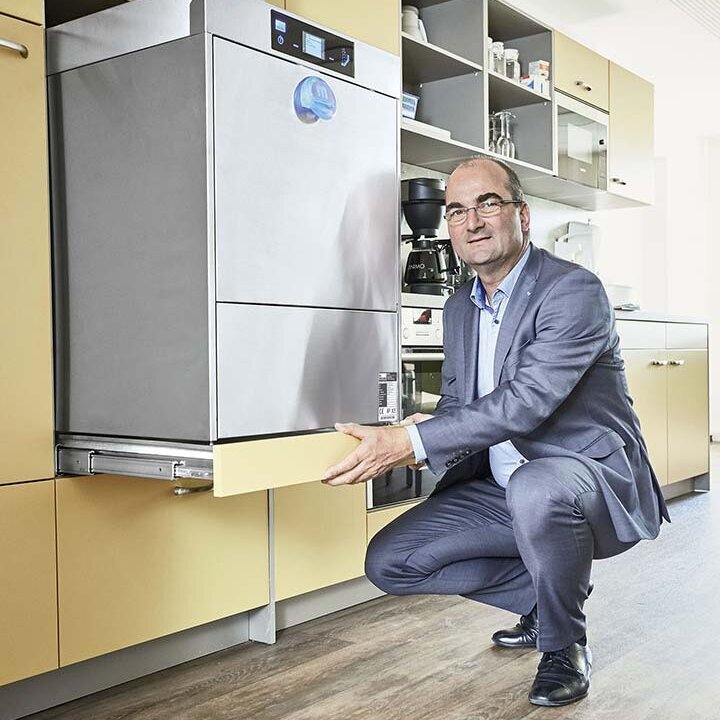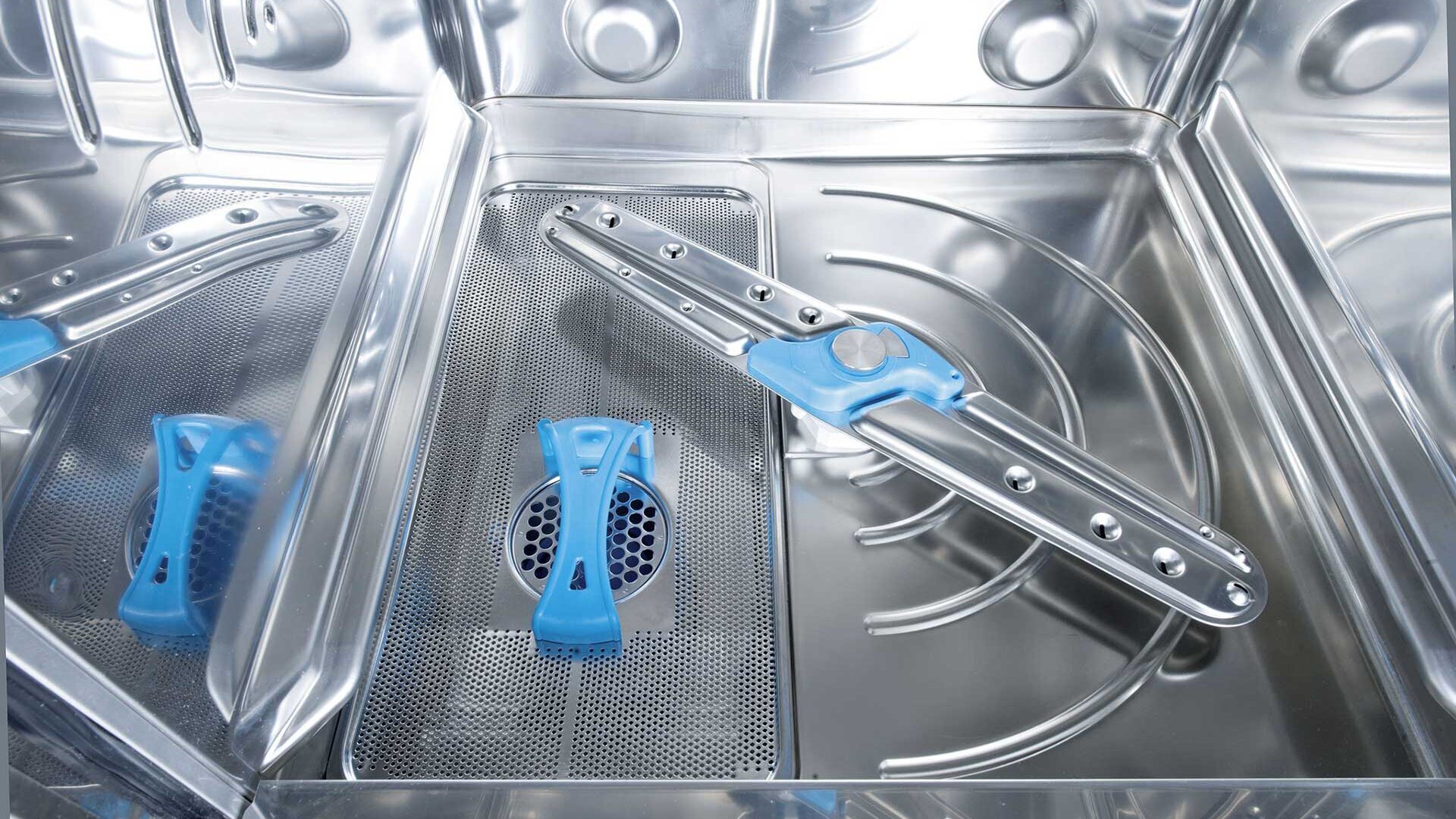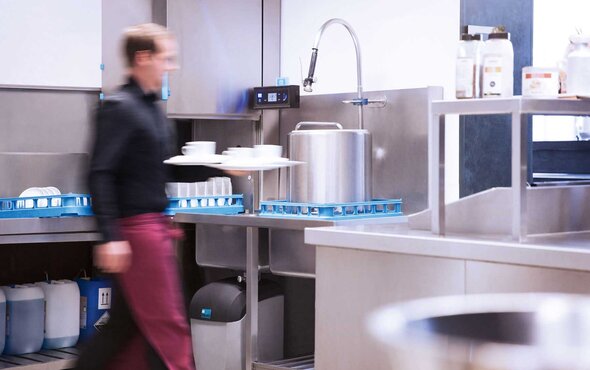For many people, a healthy lifestyle is inseparable from healthy nutrition. This is true not just in Germany, but also in the USA, China, Great Britain, and France. This was the conclusion of a survey recently undertaken by AlixPartners consulting firm.
"Sustainability" is also becoming more important for restaurateurs, manufacturers, and wholesalers, as a study by the Centre for Sustainable Corporate Leadership (ZNU) showed in 2016. A driver of this positive development is the increasing importance of communal catering in hospitals, retirement homes, universities, all-day schools, kindergartens, nurseries, and so on.
However, sustainability is not solely restricted to the food on offer. The use of energy-saving kitchen devices also plays a key role in today's catering. This is demonstrated by the circa 80 percent of restaurateurs and communal caterers responding to the ZNU study, who stated that they have already been using highly-efficient technology in their commercial kitchens for a long time.

ADVANTAGES
The reason for this is obvious: when large groups of people are provided with food several times a day, the decision-makers must strive for a good balance between economic factors and the increasing requirements on health, enjoyment, and quality. In short, the dishes should offer variety and taste good, but their production must also be economical. No short-cuts should be taken when it comes to food.
In times of rising prices for energy and water – and in the face of high throughputs of washware in commercial facilities – the use of special commercial dishwashers in communal catering is attracting more attention. Commercial dishwashers make a difference. This is because professional warewashing systems pay off sooner or later when compared with devices designed primarily for private use. They also offer many other advantages. A comparison between private and commercial dishwashers shows why food-service dishwashing machines are way ahead when it comes to consumption of resources and environmental compatibility.
CLEAN DISHES WITHIN A FEW MINUTES
The "Household dishwashing machine vs. professional dishwasher" comparison should protect decision-makers in food service from making bad investments. In all honesty, normal dishwashing machines lag behind somewhat, as they are not actually designed for use in a commercial context. The requirement profiles are too diverse for this. Dishwashing machines in private households are often switched on after a long interval – because a wash cycle is only worthwhile when the machine is full. Food residues dry harder into dishes when they are left standing for a longer time. Unfortunately, this exacerbates the cleaning process.
High temperatures make quick work of bacteria!
With commercial dishwashers this is not the case in high-frequency catering. Because dishes need to be available again quickly, the wash cycle is usually started directly after cleaning up. For this reason, a quick cycle at high temperatures while using efficient detergents is usually sufficient to clean everything perfectly. While normal dish washers can take several hours to remove stubborn soiling depending on the program, glasses and plates are already cleaned within a few minutes by commercial dishwashers.
Both approaches lead to the same goal, just in different ways. Decisive here, however, is that commercial dishwashing machines can provide a uniform hygienic result much quicker – smart, energy-efficient, and at low costs. The high temperatures make quick work of bacteria and germs, and the dishes dry by themselves for the most part.
THE WASHING SYSTEM MAKES THE DIFFERENCE
The difference is the washing system – and next to the time savings and energy efficiency, water consumption is also an important factor: at home the dishwasher takes in new water for each wash cycle, and this then has to be heated up. In most commercial dishwashers, however, the wash water is not continuously changed, rather it remains hot inside the machine, and is permanently filtered or cleaned, and added to gradually by means of an overflow.
A heating boiler with a connection value of 400 volts and three to six kilowatts ensures that the re-used wash water is kept at the right temperature. Fresh water is only required for rinsing, so commercial dishwashers are also sparing in their use of the valuable resource water.

Commercial dishwashers in communal catering therefore protect the environment in a variety of ways. At the same time, they lower operating costs and enable higher profits. They directly contribute to maintaining food quality so that no compromise in care services needs to be made for communal facilities to remain economically viable. By the way, professional devices also have advantages over normal dishwashers in terms of operation and ergonomics, whereby the health problems of employees and sickness due to work are significantly reduced.
The undercounter dishwashing machines, hood type dishwashing machines, utensil washers, flight and rack type dishwashing machines, and cart washers, provided by MEIKO as an international specialist for efficient warewashing technology, have proven their worth in the workplace.



